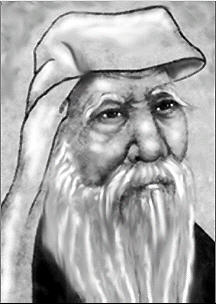
Writing is that means by which the world values the Way, but writing is no more than words and words too, have value. Meaning is what gives value to words, but meaning is dependent on something.
What meaning depends on cannot be expressed in language, yet the world transmits writing because it values language. Although the world values writing, I for my part, do not think it worthy of being valued, because what is valued is not what is really valuable. - Chuang Tzu
I came upon this pearl of wisdom while reading Peter Hessler's excellent new book on China "Oracle Bones" Hessler is also author of "Rivertown" one of my favorite books on China and one of my top rated books of the last decade.
It was a fortuitous and timely find. Lately I have been reflecting on how rapidly new words and phrases have entered our lexicon since 9/11 and the resulting arguments about their meaning and their proper or improper use.
US politics and the country's wars from 2000-2007 have created a frenzy of new words, debated meanings and arguments about when a word can or can't be used that I have not seen the likes of in my lifetime and which I can find no precedent for in American history.
These days there have been some Orwellian instances of a word's meaning being flipped so badly and of euphemisms so egregious that Big Brother himself would cringe. The wordplay runs much deeper than that though.
The use of words and phrases to pretend that something did or did not happen is especially disturbing.
The list of new words and phrases is lengthy: IEDs, WMDs, Daisy Cutters, Cut-And-Run, Stay-The-Course, Crusade, Flip-Flopper, Swift Boat for example. But it is not just the dizzying array of new words that is striking these days but how the new and old words are used.
In his new book "Words that Work: It's Not What You Say, It's What People Hear" Republican polling legend and focus-group wizard, Frank Luntz argues that now more than ever the debate about and use of words and the effort given to shape their meanings are what win elections, move people to action and define their opinions.
He was the man who changed "estate tax" to "death tax" and "climate change" for "global warming" to cynical and effective ends.
Ideas and substance, on some level, have lost their value, and words and shape shifting definitions now rule the day.
As if the Orwellian dissection and rehabilitation of words and the use of cynical euphemism were not enough, we are now engaged in constant debates about WHEN a word or phrase is applicable, its meaning and value being based soley on politics.
Is it a "Civil War"? Months of debate have been devoted to whether to call Iraq a Civil War. Questions have been asked, dictionaries taken out, geo-political precedents (both for and against) have been trotted about.
But why? Does it change the fact that thousands of people are dying. Shiites, Sunnis, Americans, Europeans. Does it change the fact that Shiites are fighting Sunnis, Americans are fighting Sunnis, Shiites are fighting Americans, Al-Qaeda is fighting Americans and Shiites and half a dozen other permutations of killing in Iraq?
Meaning is what gives value to words, but meaning is dependent on something.
What is the meaning of Civil War and what is it dependent in this situation?
Is it a "surge" or an escalation?
Well, escalation is just a word. It has a dictionary meaning (to increase, to lift) but it also has a political meaning. The Vietnam war grew through "escalation." That's a bad association for war-proponents.
New words and phrases, Orwellian backward meanings, questions about definitions, cynical euphemisms. Writing, language and words have become more dynamic than ever, but perhaps as the Chinese sage opined, they have less meaning than ever.
What meaning depends on cannot be expressed in language, yet the world transmits writing because it values language.
Its time for American politicians, pundits, writers and citizens to start putting the value back on actions, ideas and people in addtion to words.
As for the words?
We may need to answer the puzzle about what is that "something" that the meaning of words is dependent upon in order to purge the beautiful world of words of its recent diseases.


